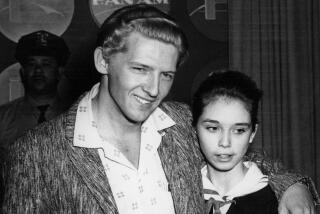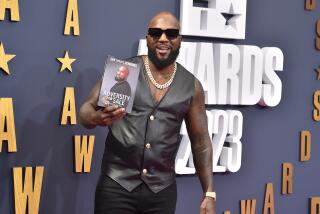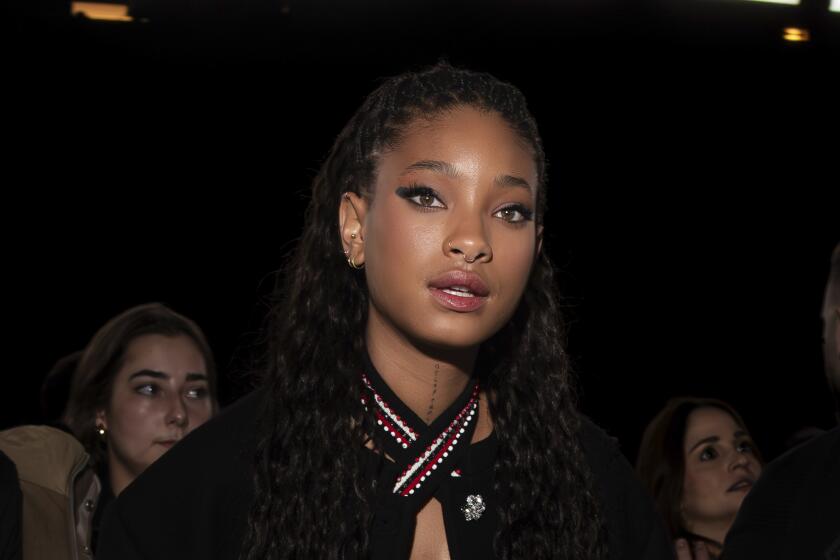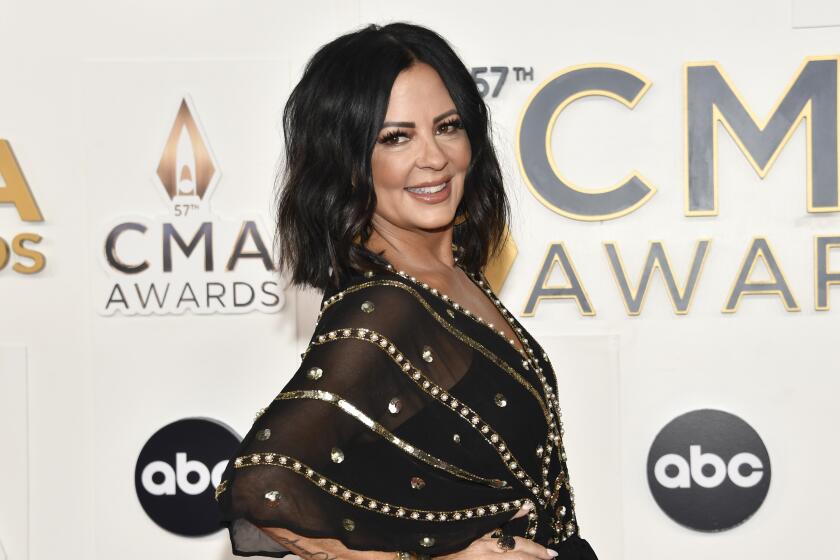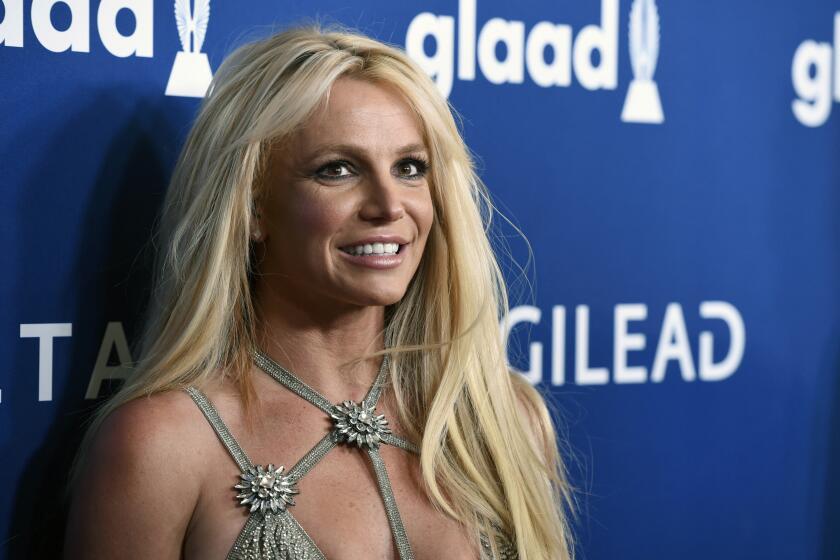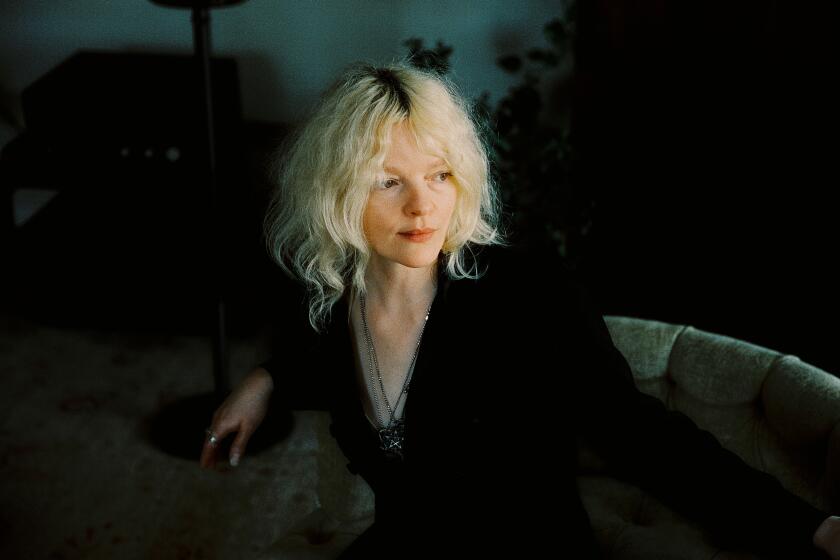Three Singers Who Defy Easy Labels
On July 4th, radio station KCRW-FM (89.9) will broadcast “The Jazz Singers”--a 13-hour tour through the genre hosted by Al Jarreau, presented in marathon format from 9 a.m. to 10 p.m. (Several other stations around Southern California will also air it at varying times.)
Three singers who will not be represented on the program, despite their varying links with jazz, illustrate how elusive the art form can be, once one looks past such obvious names as Louis Armstrong, Billie Holiday, Ella Fitzgerald and Sarah Vaughan.
It’s hard to know, for example, whether or not Eva Cassidy would ever have been comfortable with the jazz singer label. Probably not, if only because her inherent modesty would have made it difficult for her to take on such an exalted mantle. That, plus the fact that her musical interests were too far-reaching to be limited to a single genre. Yet, when Cassidy chose to do so, she was capable of interpretations that had the elements of rhythmic swing, improvisational imagination and emotional truth that we associate with the jazz vocal art.
I first heard a Cassidy recording in 1998, when the small Blix Street label released “Songbird,” which included tracks from earlier albums released in the Washington, D.C., area. Both Cassidy and Blix Street were relatively unknown at the time, and--like virtually everyone else who heard the CD--I was astounded at the extraordinary performances. Cassidy sang Sting’s “Fields of Gold” in a fashion that literally brought the number to life; and her astonishingly intimate rendering of “Over the Rainbow” (which has recently turned up in a video version) gripped the soul of the song with an intensity not heard since Judy Garland premiered it in “The Wizard of Oz.”
Although her obscurity continued in the United States, her albums struck gold in the United Kingdom, quickly zooming to the top of the pop music charts. And when the BBC selected her among its “Voices of the Century,” Cassidy--who died of cancer in November 1996 at the age of 33, still known only to a small circle of local fans--finally began to receive some of the recognition she so richly deserves.
Every item in her far too small discography is well worth having. But start with three vital items: “Time After Time” (which I included among my best albums of the year for 2000), “Live at Blues Alley” and “Songbird.” A Cassidy biography is reportedly scheduled to be published by Orion Press later this year.
Laurel Masse’s history is a bit more closely linked to jazz. She was one of the founders of the Manhattan Transfer. In the late ‘70s, however, exhausted from trying to cram too much life into too little time, she fell asleep while driving and was seriously injured. Unable to immediately return to singing, she was replaced in the Transfer by Cheryl Bentyne, who, like Masse, is a tall redhead. Many of the group’s fans were unaware there had been a change in personnel.
After her recovery, Masse’s efforts to establish a solo career were greeted with positive critical reviews, but she also found diminishing opportunities at a time when jazz was moving in a variety of indeterminate directions. Retiring from the music business for nearly a decade, she returned in the early ‘90s, led, she says, by a “series of dreams” to a primal sort of vocal expression, often rendered in solo vocal concerts.
Earlier this year, in a performance at the Cinegrill in the Hollywood Roosevelt Hotel, Masse quickly revealed that her hiatus from the jazz world had not diminished her skills, singing a floating version of “Norwegian Wood” followed by a gorgeous, wee-small-hours version of “You Don’t Know What Love Is.” A week later, at a private home concert in Thousand Oaks, she was equally adept at solo vocalizing, and it would be hard to imagine anyone other than Bobby McFerrin who could match her remarkable rendering of portions of a Bach Cello Suite.
Masse’s latest recording, “Feather and Bone,” initially available only on her small label, has now been released on Premonition/Blue Note. Is it a jazz CD? By the strictest definitions, not at all. But, like all her work, it is informed by the adventurousness and spontaneity that are essential to jazz, combined with the intimate, revelatory aspects of the deep personal quest that has been essential to her musical journey of the past decade.
Lorraine Feather has an illustrious foundation in jazz. Her mother, Jane, was a singer in the ‘40s, and her father, Leonard, was the late L.A. Times jazz critic. Her full name, in fact, is Billie Jane Lee Lorraine, after her godmother (Billie Holiday), her mother, Peggy Lee (her mother’s former roommate) and the song “Sweet Lorraine.”
Name an area of the music business, and Lorraine Feather has probably explored it. She was in the Broadway cast of “Jesus Christ, Superstar,” sang backup for Petula Clark and Grand Funk Railroad, performed with the vocal group Full Swing, and wrote lyrics for songs recorded by dozens of performers. Her work as a lyricist has received seven Emmy nominations (for shows such as “All Dogs Go to Heaven” and “The Lionhearts”), and she is working on material for Disney’s “Jungle Book II.”
Amid all this activity, Feather has always been a talented, if vastly under-recognized, jazz singer and songwriter. And those skills surface, in stunning form, in a new album, “New York City Drag,” on the Rhombus Records label.
Here, she has taken on the seemingly monumental task of writing lyrics for a collection of Fats Waller’s delightfully meandering songs and solos. The results are extraordinary, both as compositions and as performances. Reaching well beyond the standard practices of vocalese writing, Feather has come up with words that are both thoughtful and evocative, and she sings her way through the tricky passages with a vivacious sense of swing.
More to Read
The biggest entertainment stories
Get our big stories about Hollywood, film, television, music, arts, culture and more right in your inbox as soon as they publish.
You may occasionally receive promotional content from the Los Angeles Times.

